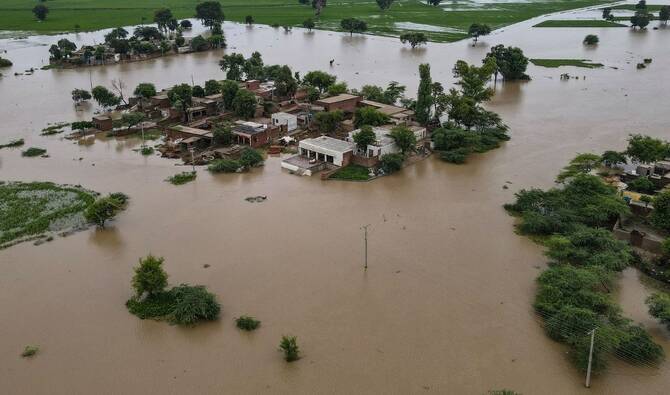UK, UN Step Up Support as Pakistan Faces Flood Crisis; Health Ministry Issues Disease Warning
Islamabad: As devastating floods continue to impact northern Pakistan and Punjab — with Sindh at increasing risk — the international community has stepped up with urgent assistance. Both the United Kingdom and the United Nations have announced new funding to support relief operations, strengthen preparedness, and protect vulnerable communities.
UK Announces £1.2 Million for Sindh
On Thursday, the UK pledged an additional £1.2 million to bolster flood preparedness in Sindh. The funds will be channelled through non-governmental organizations to support early warning systems, community evacuations, pre-positioning of supplies, and livestock protection.
British High Commissioner Jane Marriott highlighted the importance of timely action:
“Sindh is in a critical window to prepare and reduce the impact of the upcoming floods. For every dollar spent on prevention, up to seven dollars are saved in response. More importantly, lives are saved, and destruction is avoided.”
This new commitment raises the UK’s total humanitarian contribution to £2.53 million, benefiting more than 400,000 people. Earlier in August, the UK provided £1.33 million for relief in Khyber Pakhtunkhwa, Punjab, and Gilgit-Baltistan, covering food aid, rescue operations, mobile medical camps, and irrigation restoration.
In addition, £500,000 has been contributed to Pakistan’s Start Ready Disaster Risk Financing system, enabling assistance to 20,000 people across multiple provinces.
UN Allocates $600,000 Emergency Aid
The United Nations has also released $600,000 from its Regional Humanitarian Pooled Fund to support immediate relief and recovery.
UN Secretary-General Antonio Guterres expressed solidarity with Pakistan and commended authorities for relocating more than one million people in Punjab to safer areas.
Health Ministry Warns of Disease Outbreaks
The Federal Ministry of Health has issued advisories warning of heightened risks of cholera, typhoid, dengue, chikungunya, and malaria due to widespread water contamination and stagnant pools that serve as mosquito breeding grounds.
The National Institutes of Health (NIH) stressed that food-borne and water-borne illnesses could surge in flood-hit regions. Citizens have been urged to follow safety protocols and consult advisories available on the Ministry of Health and NIH websites.
No Immediate Locust Threat
In a separate development, the UN Food and Agriculture Organization (FAO) reported that Pakistan faces no immediate desert locust threat, despite favorable rainfall conditions. The FAO’s Desert Locust Bulletin noted that surveys conducted in August found no locust presence in summer breeding areas, and no significant developments are expected.

